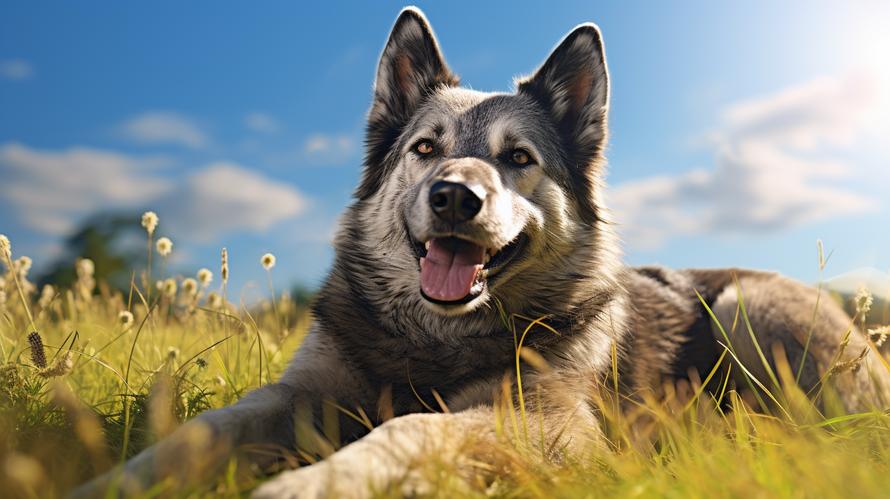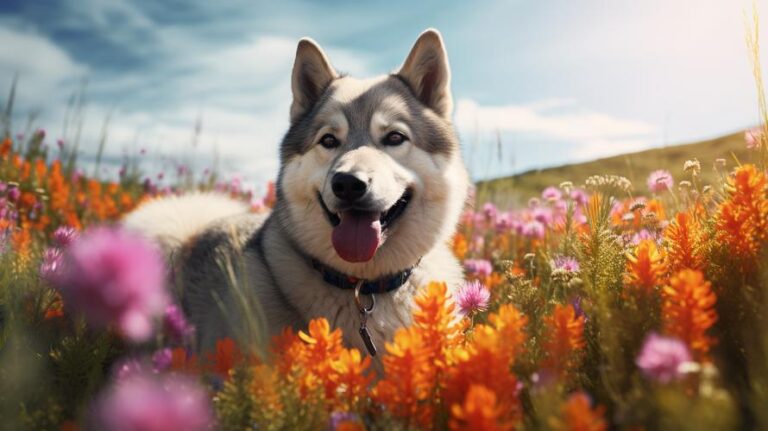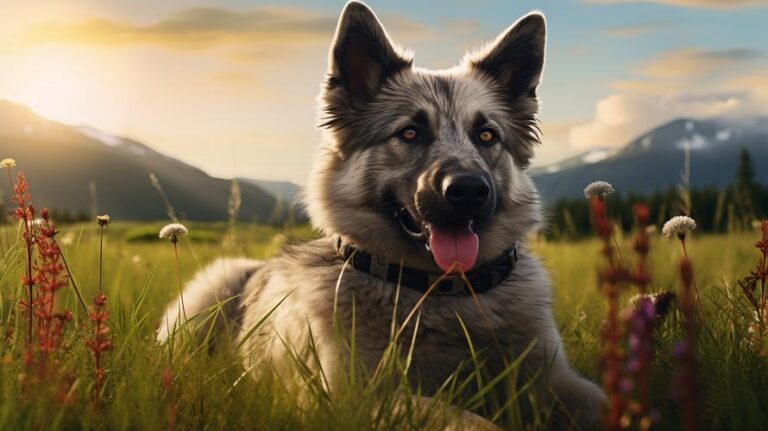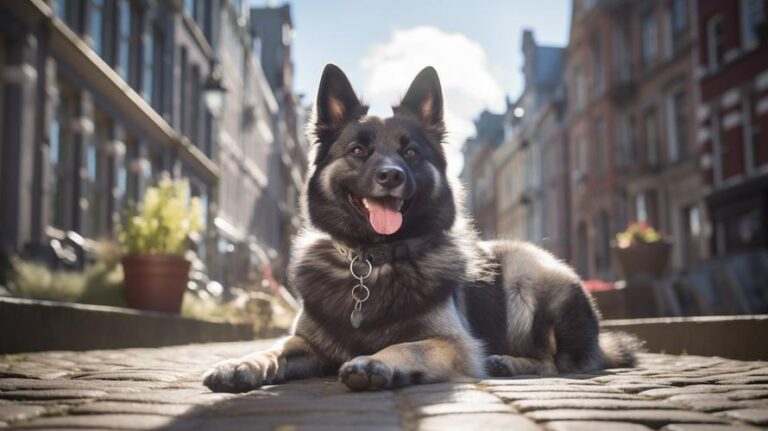Astoundingly, the Norwegian Elkhound – the national dog of Norway, carries a rich history that dates back more than five thousand years. You heard it right, five thousand! These ancient Scandinavian dogs were primarily bred for hunting game like moose and other big animals, thus earning their elkhound tag. They were adept hunters, skillful trackers, with legendary stamina, grit, and unmatched loyalty which has been preserved even today. Now, the question that begs an answer is: Is a Norwegian Elkhound easy to train?
Considering its historical background as a hunting dog, the Norwegian Elkhound is indeed known for its intelligence, inquisitiveness, and independent thinking. However, let me burst the bubble right away, and honestly say, training such an intelligent breed can sometimes be a challenge.
Cast your worries aside though, by the end of this comprehensive article, you’ll be equipped with a wealth of useful tips and advice on training your Norwegian Elkhound, thus making it an easy and enjoyable experience. Strap in for a fun and educational ride.
Before you embark on the training journey, understanding your dog is key. Equipped with a mind of its own, the Norwegian Elkhound is troubled with a stubborn streak. Often, they are convinced that they know better than you do. Now, that’s an attitude, isn’t it?
Though at times this challenging attitude might test your patience, it’s essential to remember, this is part of their charm. This breed’s independent thinking and analytical nature were survival traits when they were hunting in the unforgiving Nordic wilderness.
A Norwegian Elkhound is quick-witted and loves mental challenges. Use this to your advantage—try using puzzle games or innovative training methods that can stimulate their minds. Regularly altering your training techniques will also keep this intellectually active breed from becoming overtly bored and less responsive.
Consistency plays a vital role in training any dog, and Norwegian Elkhounds are no different. Make sure you’re consistent with your commands, gestures, and reactions. This breed is quick to pick up on your behavior pattern and will react accordingly. If you reward them for a certain behavior one day and scold them for the same thing the next, it’s likely to confuse them. Make sure to use a firm yet loving voice while giving commands.
While training a Norwegian Elkhound takes a fair bit of patience, here’s some good news: The breed is a people-pleaser. They adore their families and are always keen to make them happy. This trait can be a real boon when it comes to training.
Positive reinforcement training works wonders with Norwegian Elkhounds, and they respond exceptionally well to it. Treats, praises, and physical affection, when given immediately after they perform the desired task, motivates them to repeat the action in the future. However, beware of over-treating as it could lead to obesity—an issue often seen in the breed.
Socialization skills should be high on your teaching list. Statistically, Elkhounds are not as open and friendly with strangers as they are with their own families. They’re innately reserved and would take their own sweet time to warm up to strangers. Hence, exposing them to different environments, people, and animals while they’re still a puppy can help contain their territorial instincts and encourage them to be more socially accepting.
Lastly, remember that training should be seen as an opportunity to build a stronger bond with your pet. Don’t feel disheartened if your Norwegian Elkhound doesn’t pick up tasks and commands as quickly as you’d like. Training isn’t just about teaching but it’s also about understanding their behavioral pattern, limits, and loving them regardless.
Summing it up, training a Norwegian Elkhound might ruffle a few feathers, until and unless you are too much into “I say, dog does” kind of relationship. But with some patience, understanding, and a grin full of love, it’s fair to say this ancient Viking breed is indeed trainable, and when done right, you’ll end up with a loyal, independent, and playful companion. Sounds like a pretty good trade-off, doesn’t it?



